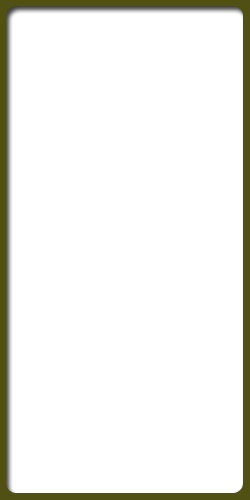
Designed by Ware Welch Web Design
Hosted by Ware Welch Web Hosting
Copyright © 2007-2025 Ware Welch Web Design;
All Rights Reserved
Hosted by Ware Welch Web Hosting
Copyright © 2007-2025 Ware Welch Web Design;
All Rights Reserved
Huge range of good value reptile produts at: Blue Lizard Reptiles
Want a break? Visit: www.holidaybookr.com the holiday comparison site!
Looking for products? Visit: www.whats-in-stock.com the product locator website!
or Visit: www.who-stocks.com for some great deals.
Want a break? Visit: www.holidaybookr.com the holiday comparison site!
Looking for products? Visit: www.whats-in-stock.com the product locator website!
or Visit: www.who-stocks.com for some great deals.






The correct diet is essential for tortoises if they are to remain healthy and vigorous.
This article briefly explains the need for supplements in a tortoises diet and how to administer them.
This article briefly explains the need for supplements in a tortoises diet and how to administer them.

Correct diet is essential to a healthy tortoise. In the wild, the tortoise is in control of its own diet and naturally selects the correct foods with the correct balance of vitamins and minerals. In captivity, a tortoise usually has to eat what it is given and this diet is sometimes lacking in some of the tortoises basic needs.
The most common deficiency in tortoise diets in the UK is calcium deficiency. Calcium is essential to tortopise for bone and shell formation and maintainence and l deficiency results in soft shells and other deformities. Calcium deficiency can be caused in three ways. Firstly, by offering foods which haven't got enough calcium content to start with. Secondly, by offering foods which have a poor phosphorous:calcium ratio (i.e. the have too much phosphorous and not enough calcium) such as rhubarb leaves or shop bought vegetables. Finally, calcium is absobed in many animals by a process involving vitamin D3. In herbivorous animals such as tortoises, there is little or no vitamin D3 in their diet, so it is manufactured by the tortoise using the UVb rays from sunshine. Failure to provide adequate levels of UVb rays for your tortoise will mean that it cannot absorb enough calcium regardless of how much there is in the diet.
In order to ensure that your tortoise does not become deficient in calcium it is necessary to provide extra calcium in th form of supplements. Many manufacturers provide some sort of calcium carbonate dust which can be added to your tortoises food every feed or every other feed depending on your preference. We find that the best way to get the calcium onto leaves and flowers is to first make sure that the leaves and flowers are reasonably dry (or the calcium just clumps up and clings to wetter areas) and then to put the leaves and flowers into a plastic bag along with the calcium powder. Blow the bag up and twit to seal it and then shake it vigourously. The result should be that your leaves and flowers are given a thin even coating of calcium powder.
In order to ensure that vital trace elements and other vitamins and minerals are not omitted from your tortoises diet (usually due to lack of variety in available foodstuffs), it is advisable to dust your tortoises food at least once or twice a week with a good quality vitamin and mineral supplement designed specifically for reptiles. There are several different manufacturers making suitable supplements in powder form and these can be added to the food in the same way as the calcium powder (described above).
The most common deficiency in tortoise diets in the UK is calcium deficiency. Calcium is essential to tortopise for bone and shell formation and maintainence and l deficiency results in soft shells and other deformities. Calcium deficiency can be caused in three ways. Firstly, by offering foods which haven't got enough calcium content to start with. Secondly, by offering foods which have a poor phosphorous:calcium ratio (i.e. the have too much phosphorous and not enough calcium) such as rhubarb leaves or shop bought vegetables. Finally, calcium is absobed in many animals by a process involving vitamin D3. In herbivorous animals such as tortoises, there is little or no vitamin D3 in their diet, so it is manufactured by the tortoise using the UVb rays from sunshine. Failure to provide adequate levels of UVb rays for your tortoise will mean that it cannot absorb enough calcium regardless of how much there is in the diet.
In order to ensure that your tortoise does not become deficient in calcium it is necessary to provide extra calcium in th form of supplements. Many manufacturers provide some sort of calcium carbonate dust which can be added to your tortoises food every feed or every other feed depending on your preference. We find that the best way to get the calcium onto leaves and flowers is to first make sure that the leaves and flowers are reasonably dry (or the calcium just clumps up and clings to wetter areas) and then to put the leaves and flowers into a plastic bag along with the calcium powder. Blow the bag up and twit to seal it and then shake it vigourously. The result should be that your leaves and flowers are given a thin even coating of calcium powder.
In order to ensure that vital trace elements and other vitamins and minerals are not omitted from your tortoises diet (usually due to lack of variety in available foodstuffs), it is advisable to dust your tortoises food at least once or twice a week with a good quality vitamin and mineral supplement designed specifically for reptiles. There are several different manufacturers making suitable supplements in powder form and these can be added to the food in the same way as the calcium powder (described above).

